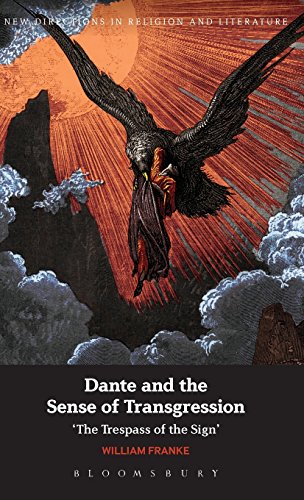

Most ebook files are in PDF format, so you can easily read them using various software such as Foxit Reader or directly on the Google Chrome browser.
Some ebook files are released by publishers in other formats such as .awz, .mobi, .epub, .fb2, etc. You may need to install specific software to read these formats on mobile/PC, such as Calibre.
Please read the tutorial at this link: https://ebookbell.com/faq
We offer FREE conversion to the popular formats you request; however, this may take some time. Therefore, right after payment, please email us, and we will try to provide the service as quickly as possible.
For some exceptional file formats or broken links (if any), please refrain from opening any disputes. Instead, email us first, and we will try to assist within a maximum of 6 hours.
EbookBell Team

0.0
0 reviewsIn Dante and the
Sense of Transgression, William Franke combines literary-critical analysis
with philosophical and theological reflection to cast new light on Dante's
poetic vision. Conversely, Dante's medieval masterpiece becomes our guide
to rethinking some of the most pressing issues of contemporary theory.
Beyond suggestive
archetypes like Adam and Ulysses that hint at an obsession with transgression
beneath Dante's overt suppression of it, there is another and a prior sense in
which transgression emerges as Dante's essential and ultimate gesture.
His work as a poet culminates in the Paradiso in a
transcendence of language towards a purely ineffable, mystical experience
beyond verbal expression. Yet Dante conveys this experience, nevertheless,
in and through language and specifically through the transgression of language,
violating its normally representational and referential functions. Paradiso's
dramatic sky-scapes and unparalleled textual performances stage a
deconstruction of the sign that is analyzed philosophically in the light of
Blanchot, Levinas, Derrida, Barthes, and Bataille, as transgressing and
transfiguring the very sense of sense.